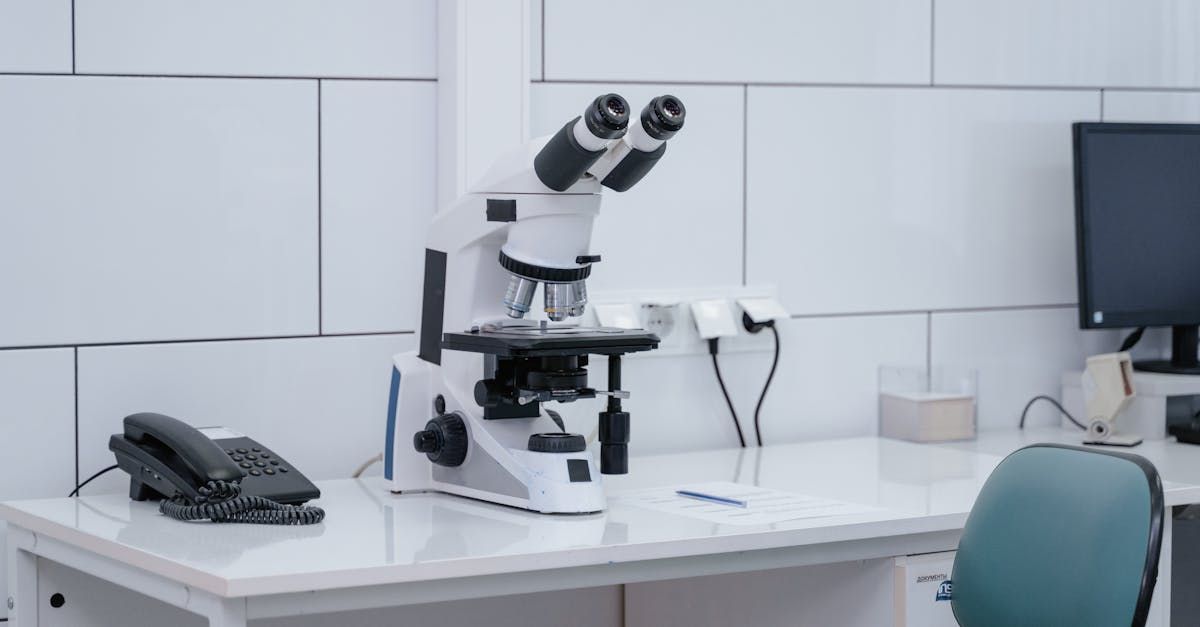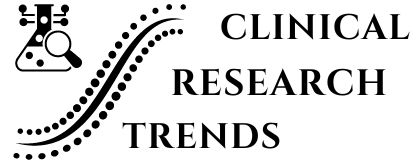The Use of Mobile Health Technologies in Clinical Research
Mobile health technologies, often referred to as mHealth, have revolutionized the way healthcare is delivered and managed. With the proliferation of smartphones, wearable devices, and various health-related apps, the landscape of clinical research has seen significant transformations. This blog aims to explore the use of mobile health technologies in clinical research, highlighting their benefits, challenges, and the future potential they hold.
Overview of Mobile Health Technologies
Mobile health technologies encompass a wide range of tools and applications designed to support healthcare delivery and research through mobile devices. These technologies include wearable devices that monitor physiological parameters, mobile applications that collect health data, and platforms that facilitate telemedicine and remote monitoring. The integration of these tools in clinical research offers new avenues for data collection, participant engagement, and the overall efficiency of research processes.
Importance of Clinical Research
Clinical research is the cornerstone of medical advancements. It involves systematic investigations to establish the safety and efficacy of new treatments, interventions, and healthcare strategies. The insights gained from clinical research lead to better understanding of diseases, development of new therapies, and improvements in patient care. However, traditional clinical research methods often face significant challenges, including high costs, logistical complexities, and difficulties in recruiting and retaining participants. Mobile health technologies have emerged as a promising solution to address these challenges and enhance the efficiency and effectiveness of clinical research.
This blog aims to provide a comprehensive overview of the use of mobile health technologies in clinical research. We will delve into the current challenges faced by clinical research, explore the various applications of mobile health technologies, examine technological solutions that are being implemented, and discuss real-world case studies. Furthermore, we will address the ethical considerations and challenges associated with the use of these technologies and explore future directions and innovations. The goal is to provide a holistic understanding of how mobile health technologies can transform clinical research and to encourage stakeholders to embrace these innovations for the benefit of healthcare advancements.
Current Challenges in Clinical Research
Despite the critical role of clinical research in medical progress, the field faces several significant challenges that hinder its effectiveness and efficiency.
High Costs and Inefficiencies
Clinical trials, a fundamental component of clinical research, are often costly and time-consuming. The expenses associated with conducting trials include costs for site management, data collection, participant compensation, and regulatory compliance. Additionally, inefficiencies in trial design and execution can lead to delays, further escalating costs. These financial and operational burdens can limit the scope and scale of research projects, hindering the discovery of new treatments and therapies.
Participant Recruitment and Retention
Recruiting and retaining participants for clinical trials is a persistent challenge. Traditional recruitment methods, such as advertising and outreach through healthcare providers, can be limited in reach and effectiveness. Additionally, participants may face barriers such as travel requirements, time commitments, and discomfort with the research process, leading to high dropout rates. These challenges can result in underrepresentation of certain populations and potentially bias the results of the study.
Data Management and Analysis
The collection, management, and analysis of data are critical components of clinical research. However, traditional methods often involve manual data entry, which can be prone to errors and inefficiencies. Additionally, the integration of data from multiple sources, such as electronic health records (EHRs), laboratory results, and patient-reported outcomes, can be complex and challenging. Ensuring the accuracy, consistency, and security of data is paramount, yet it remains a significant hurdle in clinical research.
Mobile Health Applications in Clinical Research
The advent of mobile health technologies has introduced innovative solutions to address the challenges faced by clinical research. These technologies offer new opportunities for data collection, participant engagement, and remote monitoring, making clinical research more efficient and accessible.
Wearable Devices and Sensors
Wearable devices and sensors have become increasingly popular in healthcare and clinical research. These devices, such as smartwatches, fitness trackers, and specialized medical devices, can continuously monitor physiological parameters like heart rate, activity levels, sleep patterns, and more. In clinical research, wearable devices enable the collection of real-time data from participants, providing valuable insights into their health status and response to interventions. This continuous data collection allows for more comprehensive and accurate assessments compared to traditional methods that rely on periodic visits and self-reported data.
Mobile Health Apps for Data Collection
Mobile health apps have revolutionized the way data is collected in clinical research. These apps can be used to collect patient-reported outcomes, symptom tracking, medication adherence, and other health-related information directly from participants. By utilizing smartphones, researchers can reach a broader and more diverse population, including those in remote or underserved areas. Mobile apps also offer the advantage of providing real-time feedback and alerts to participants, promoting engagement and adherence to study protocols.
Remote Monitoring and Telemedicine
Remote monitoring and telemedicine have become essential components of clinical research, especially in the wake of the COVID-19 pandemic. These technologies enable researchers to monitor participants' health remotely, reducing the need for in-person visits and minimizing the burden on participants. Telemedicine platforms facilitate virtual consultations, allowing researchers to conduct assessments, collect data, and provide support to participants from a distance. This approach not only improves convenience for participants but also enhances the scalability and reach of clinical trials.
Technological Solutions
As mobile health technologies continue to evolve, several advanced solutions have emerged to enhance data management, security, and analysis in clinical research.
Advanced Analytics and Data Integration
Advanced analytics, including data mining, machine learning, and predictive modeling, play a crucial role in analyzing the vast amounts of data generated by mobile health technologies. These techniques enable researchers to identify patterns, predict outcomes, and gain deeper insights into the data. Additionally, integrating data from multiple sources, such as wearables, EHRs, and genomic data, can provide a more holistic view of a participant's health. Advanced analytics and data integration are key to unlocking the full potential of mobile health technologies in clinical research.
Blockchain for Secure Data Management
Data security and privacy are paramount in clinical research, where sensitive health information is often collected and analyzed. Blockchain technology offers a promising solution for secure data management. By using a decentralized and immutable ledger, blockchain ensures that data is tamper-proof and transparent. This technology can be used to store and share data securely, ensuring that only authorized parties have access to sensitive information. Additionally, blockchain can facilitate the tracking and verification of data provenance, enhancing the trustworthiness of the data collected in clinical trials.
AI and Machine Learning for Data Analysis
Artificial intelligence (AI) and machine learning (ML) are transforming the way data is analyzed in clinical research. These technologies can process large datasets quickly and accurately, identifying trends and patterns that may not be apparent through traditional analysis methods. AI and ML can also assist in developing predictive models, personalizing treatment plans, and identifying potential adverse events. By leveraging these technologies, researchers can gain deeper insights into the data, leading to more informed decisions and improved outcomes.
Case Studies and Examples
The implementation of mobile health technologies in clinical research has led to numerous success stories and valuable lessons. In this section, we will explore some case studies that highlight the impact of these technologies on research outcomes.
Successful Implementations of Mobile Health Technologies
One notable example is the use of wearable devices in cardiovascular research. Studies have used smartwatches and fitness trackers to monitor patients' heart rates, physical activity, and sleep patterns. This continuous monitoring has provided researchers with detailed data on the impact of lifestyle factors on cardiovascular health, leading to better understanding and management of these conditions.
Another example is the use of mobile health apps for diabetes management. These apps allow patients to log their blood glucose levels, track their diet and exercise, and receive personalized feedback. In clinical trials, these apps have been shown to improve glycemic control and enhance patient engagement, demonstrating the potential of mobile health technologies to support chronic disease management.
Impact on Research Outcomes
The use of mobile health technologies has had a significant impact on research outcomes. By providing real-time and continuous data, these technologies offer a more comprehensive view of participants' health, leading to more accurate assessments of treatment efficacy and safety. Additionally, the use of mobile apps and remote monitoring has improved participant retention and compliance, reducing dropout rates and enhancing the validity of study results.
Lessons Learned and Insights
The successful implementation of mobile health technologies in clinical research has provided several valuable insights. First, it is essential to ensure that the technology is user-friendly and accessible to participants. This includes designing intuitive interfaces, providing adequate training, and offering support throughout the study. Second, data quality and integrity must be prioritized, with robust systems in place for data collection, storage, and analysis. Finally, researchers must consider the ethical and regulatory implications of using mobile health technologies, ensuring that participants' privacy and data security are protected.
Challenges and Ethical Considerations
While mobile health technologies offer numerous benefits, they also present several challenges and ethical considerations that must be addressed.
Data Quality and Integration
One of the primary challenges in using mobile health technologies is ensuring the quality and consistency of the data collected. Wearable devices and mobile apps can generate large volumes of data, but this data may be subject to variability and inaccuracies. Ensuring that the data is accurate, complete, and consistent across different devices and platforms is crucial for reliable research outcomes. Additionally, integrating data from multiple sources can be complex, requiring sophisticated data management systems and analytical tools.
Addressing Privacy and Security Concerns
The use of mobile health technologies raises significant privacy and security concerns. Participants' health data is sensitive and must be protected from unauthorized access and breaches. Researchers and developers must implement robust security measures, such as encryption, access controls, and secure data storage, to safeguard participants' data. Additionally, transparency and informed consent are critical, ensuring that participants understand how their data will be used, who will have access to it, and what measures are in place to protect their privacy.
Regulatory and Ethical Challenges
The regulatory landscape for mobile health technologies is complex and evolving. Different countries and regions have varying regulations and guidelines for the use of these technologies in clinical research. Researchers must navigate these regulatory requirements to ensure compliance and protect participants' rights. Additionally, ethical considerations, such as ensuring equitable access to technology and avoiding the digital divide, must be addressed. Researchers must also consider the potential for bias in data collection and analysis, particularly if certain populations are underrepresented in the data.
Future Directions and Innovations
The field of mobile health technologies is rapidly evolving, with new innovations and trends emerging that have the potential to further transform clinical research.
Emerging Trends in Mobile Health Technologies
One emerging trend is the use of digital biomarkers, which are objective measures of physiological and behavioral data collected through digital devices. These biomarkers can provide valuable insights into disease progression, treatment response, and patient outcomes. Another trend is the integration of artificial intelligence and machine learning in mobile health technologies, enabling more advanced data analysis and predictive modeling. Additionally, the use of augmented reality (AR) and virtual reality (VR) in clinical research is gaining traction, offering new ways to engage participants and simulate real-world scenarios.
Integration with Real-World Data and Digital Health
The integration of mobile health technologies with real-world data (RWD) and digital health initiatives is another key trend. RWD includes data collected from a variety of sources, such as electronic health records, claims data, and social media, providing a more comprehensive view of patients' health outside the clinical trial setting. Integrating RWD with data from mobile health technologies can enhance the understanding of treatment effectiveness, patient outcomes, and healthcare utilization. This integration also supports the move towards precision medicine, where treatments are tailored to individual patients based on their unique characteristics and preferences.
Vision for the Future of Clinical Research
Looking ahead, the future of clinical research will be increasingly digital and data-driven. Mobile health technologies will play a central role in this transformation, enabling more efficient and patient-centric research. The use of advanced analytics, AI, and machine learning will enhance the ability to analyze complex datasets and gain deeper insights into health and disease. Additionally, the integration of mobile health technologies with other digital health initiatives will support the development of personalized and evidence-based treatments. However, it is essential to address the challenges and ethical considerations associated with these technologies to ensure that the benefits are realized in a responsible and equitable manner.
Conclusion
Mobile health technologies have the potential to revolutionize clinical research by offering new tools for data collection, participant engagement, and remote monitoring. These technologies can address many of the challenges faced by traditional clinical research, such as high costs, participant recruitment and retention, and data management. However, the successful implementation of mobile health technologies requires careful consideration of data quality, privacy, security, and regulatory issues.
The future of clinical research lies in the continued innovation and integration of mobile health technologies with other digital health initiatives. Stakeholders, including researchers, healthcare providers, technology developers, and regulators, must collaborate to embrace these innovations and harness their potential to improve patient outcomes and advance medical knowledge. By doing so, we can create a more efficient, patient-centric, and data-driven approach to clinical research, ultimately leading to better healthcare for all.
In conclusion, the use of mobile health technologies in clinical research represents a significant opportunity for the healthcare industry. The benefits of these technologies are clear, but it is essential to address the challenges and ethical considerations to ensure that their implementation is responsible and equitable. As we move forward, stakeholders must continue to innovate and collaborate to fully realize the potential of mobile health technologies in clinical research. By doing so, we can create a brighter future for healthcare and improve the lives of patients around the world.










